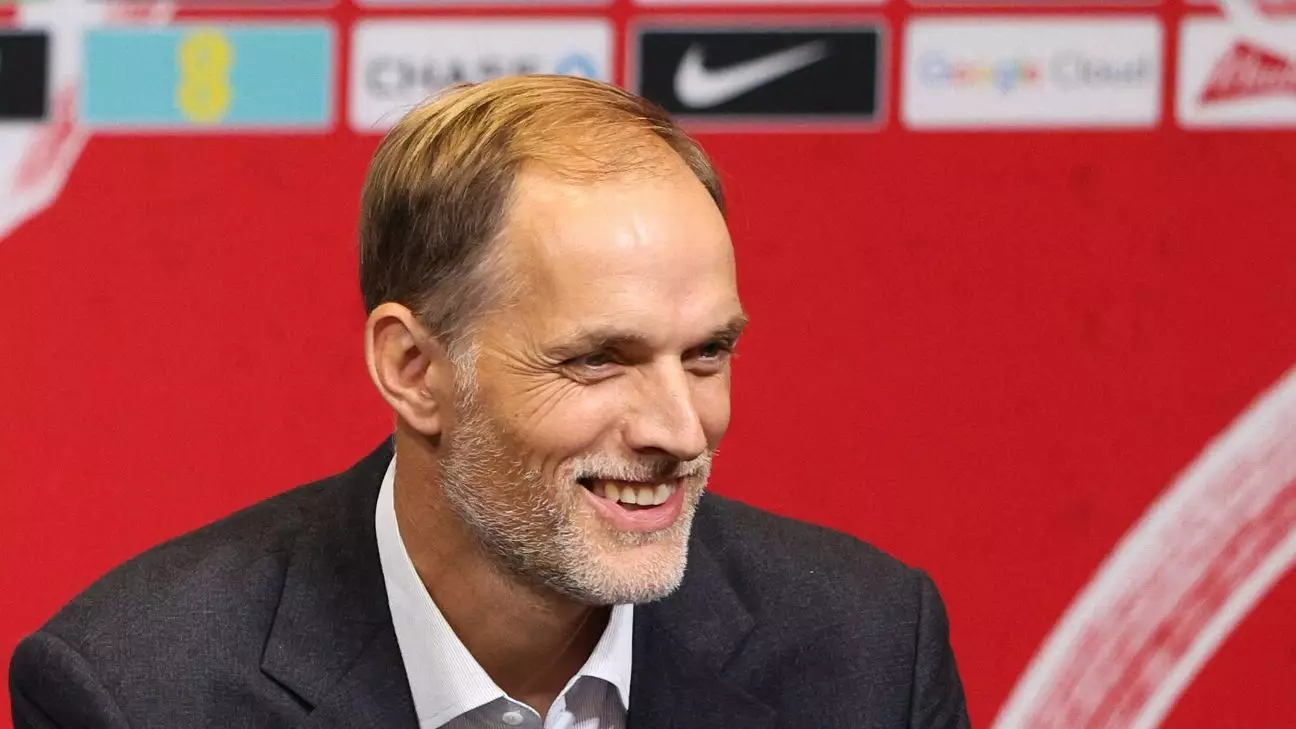In a surprising turn of events in the footballing world, Thomas Tuchel has stepped into the role of head coach for the England men’s national football team, succeeding Gareth Southgate. This decision has been described by Tuchel himself as a “step into the unknown.” While the transition may appear daunting, Tuchel embraces the challenge, outlining his ambitions not just to lead the team but to instill a new ethos centered around success. With the 2026 FIFA World Cup looming, the stakes have never been higher, and Tuchel sees this moment as an opportunity to add “another star on the shirt.”
The German coach, whose resume boasts an impressive eleven major trophies across Europe with clubs such as Chelsea, Bayern Munich, and Paris Saint-Germain, has become the third foreign-born manager to helm the English national team. His arrival was marked by a clear acknowledgement of the high expectations surrounding him. Football Association (FA) chief executive Mark Bullingham indicated that a thorough selection process took place, evaluating several candidates, including renowned managers from the Premier League, before ultimately settling on Tuchel.
Despite his considerable success, Tuchel’s interim framework—an 18-month contract—raises questions about the long-term vision for the England team. He candidly admitted the uniqueness of this situation, contrasting it with his experiences at club level where substantial daily interactions with players and staff comprise his norm. His dedication to evolving his coaching methodology to fit the national team is indicative of a mature understanding of football management.
“It’s important to have a little bit of a framework around it because it is a step into the unknown for me,” Tuchel explained. He recognizes that his role will involve less hands-on daily management, requiring a strategic approach to player communication and preparation over a compressed timeline. Tuchel plans to focus on qualification efforts and securing a positive World Cup result before examining the potential for extended engagement beyond this contract.
Crucially, Tuchel also reflects on the importance of team dynamics, emphasizing a collaborative spirit among players and staff. This cooperation is not merely about achieving results; it’s instrumental in crafting a culture that fosters success. Tuchel believes that the current squad possesses the potential to instigate change and compete effectively on the world stage. He acknowledges the gradual progress made under Southgate, who led England to consecutive European Championship finals and a World Cup semifinal, but he is unshaken by the historical 58-year wait for a major title.
“We have our players competing in the strongest league in the world every week, and that’s a huge advantage,” he stated, recognizing the strength of the Premier League as a catalyst for player development. The key to overcoming past shortcomings, he believes, lies in harnessing the existing talent and pushing it to new heights, blending club-level strategies with national aspirations.
A Touch of Respect and Reflection
In light of the national anthem controversy raised by interim boss Lee Carsley, Tuchel faces a potential dilemma about his own patriotic expression as a manager of a country with which he has historical sporting rivalries. He approached the subject thoughtfully, detailing the emotional resonance of the English anthem. This respect for tradition and fellow competitors demonstrates Tuchel’s sensitivity towards his new role and the cultural nuances of managing a national team, a departure from the more isolated environment of club football.
Tuchel’s intentions to embody respect for England’s heritage while aiming for shared success underline a dual commitment: both to the national identity and to the pursuit of excellence. He reassures supporters of his dedication, resounding confidence and pride in representing England, and emphasizes that the squad deserves a fair opportunity to secure a major trophy.
A Path of Challenges Ahead
As Tuchel prepares to step onto the international stage, the challenges he faces are manifold. He must navigate the complexities of integrating his coaching style into a national setup, balancing respect for England’s football culture while also influencing changes that may lead to eventual glory. Engaging with players, staff, and fans will be critical in building the necessary rapport for success.
Ultimately, Tuchel’s vision is clear. “Whatever comes, comes, but I am here to put our efforts into winning.” The upcoming campaign, starting on January 1, signals not just the beginning of a new managerial era, but also marks a pivotal moment in rediscovering England’s football ambition on the international stage. As he embarks on this journey, the expectation remains that Tuchel’s approach will finally bring home the trophy that generations of players and supporters have longed to see.

